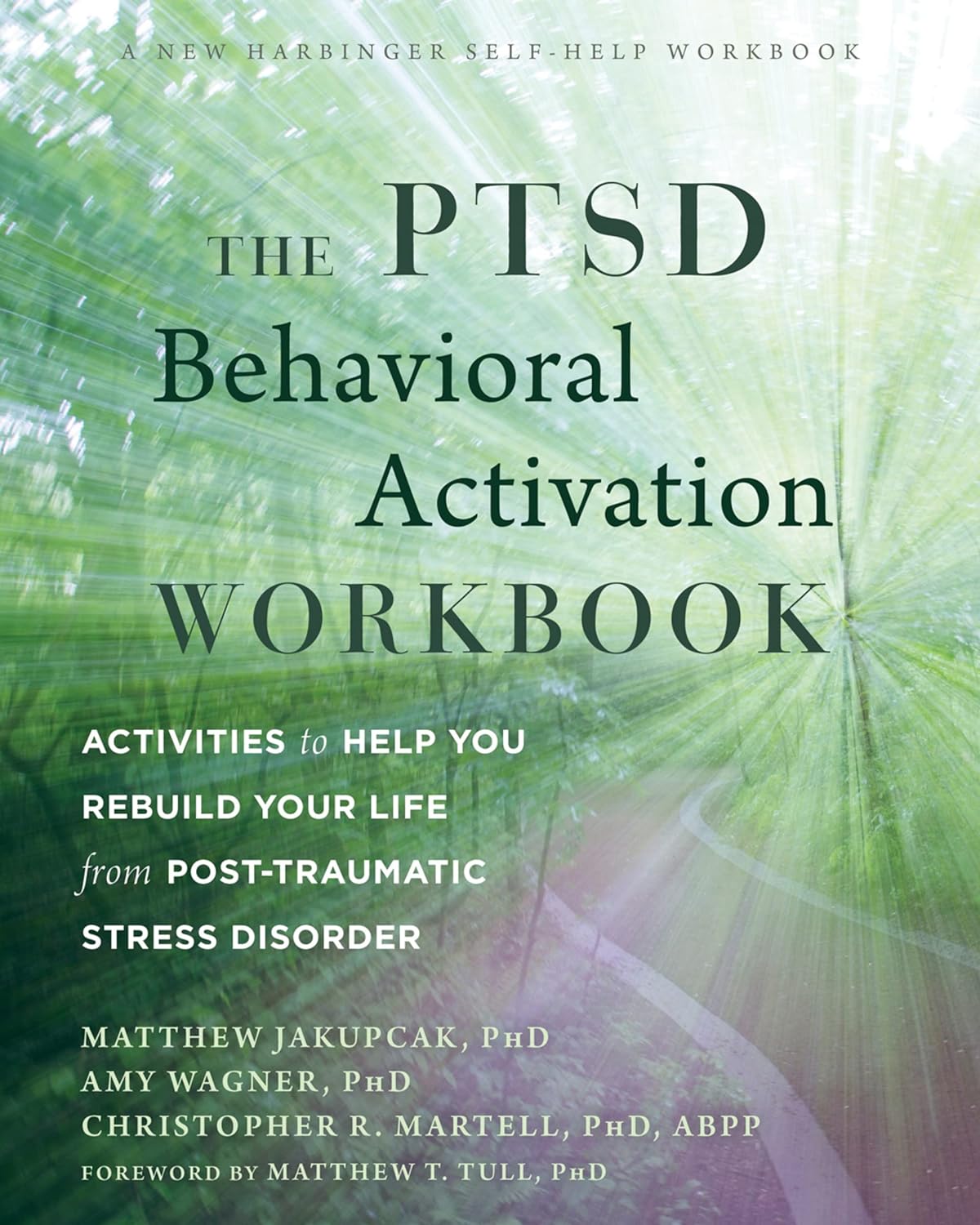
PTSD Behavioral Activation Workbook
A simple, effective, and groundbreaking approach to help you move beyond trauma and focus on the things that bring you joy.
If you suffer from post-traumatic stress disorder (PTSD), reliving the past through trauma-focused treatments may be too painful a place to start. Behavioral activation—the powerful treatment method outlined in this workbook—provides an essential foundation for recovery by shifting the focus of your trauma to the things in life that give you true fulfillment, joy, and value. This way, you can envision the kind of future you want to have, and move forward in your treatment to pursue that future.
With this breakthrough workbook, you’ll learn to replace unproductive coping strategies—such as avoidance—with activities that you find pleasant and meaningful. You’ll find an overview of behavioral activation: what it is, why it works, and how you can implement it into your life to begin healing the wounds of your past and paving the way for a bright future full of possibility.
If you’ve experienced trauma, you need real tools to help you manage your pain and jumpstart your recovery. With this compassionate and evidence-based workbook, you’ll find actionable solutions to help you begin healing and take that next needed step toward wellness, wholeness, and peace.
Editorial Reviews
"Having spent many years treating depressed clients with behavioral activation, and being forced by circumstance to address post-traumatic stress disorder (PTSD) and PTSD symptoms as part of this work, I can state clearly that this book is necessary. Jakupcak, Wagner, and Martell combine a real empathic understanding of the lives, needs, and struggles of people with PTSD with expertise in behavioral activation to produce a useful, hands-on guide. At the core of many clinical problems, including PTSD, is avoidance, and this book offers the most practical and empathic analysis of avoidance that I have experienced. I expect the workbook will be helpful to both clients and their therapists.”
—Jonathan Kanter, PhD, director of the Center for the Science of Social Connection at the University of Washington
“People with mental health problems, including those with PTSD, tell us they want treatment choices that can be individualized, accessed easily, and which they can undertake at their own pace. Most importantly, they want treatments that work. In this book Jakupcak, Wagner, and Martell have delivered on all counts. They describe behavioral activation for PTSD, a scientifically proven treatment that people can use at their own pace, with easy-to-use instructions and plans. It is a book that will be warmly welcomed by those with PTSD, their friends and family, and by therapists alike. I heartily recommend it.”
—David A. Richards, PhD, professor of mental health services research at the University of Exeter in the UK; and chief investigator and author of the ‘COBRA’ (Cost and Effectiveness of Behavioural Activation) clinical trial for The Lancet
“This is an excellent volume that clearly and practically outlines the rationale, principles, and core techniques of behavioral activation targeting PTSD. As noted in the introduction and documented throughout the extremely high-quality workbook, the authors are outstanding examples of clinician-investigators who have worked to apply the principles and techniques outlined in the volume in their own psychotherapy practices. The volume outlines how behavioral activation may be an excellent first step in the journey towards recovery from PTSD.… An outstanding and articulate overview of behavioral activation from a group of pioneering clinician-investigators whose randomized trials have begun to establish the evidence base for behavioral activation as a mainstream PTSD treatment.”
—Doug Zatzick, MD, professor in the department of psychiatry and behavioral sciences at the University of Washington School of Medicine
About the Author(s)
Matthew Jakupcak
Matthew Jakupcak, PhD, is a clinical psychologist and researcher who has studied and treated psychological trauma, post-traumatic stress disorder (PTSD), and high-risk behaviors in military veterans, first responders (i.e., firefighters, paramedics, police officers), and young adults. Jakupcak is an associate...
Read MoreBack
